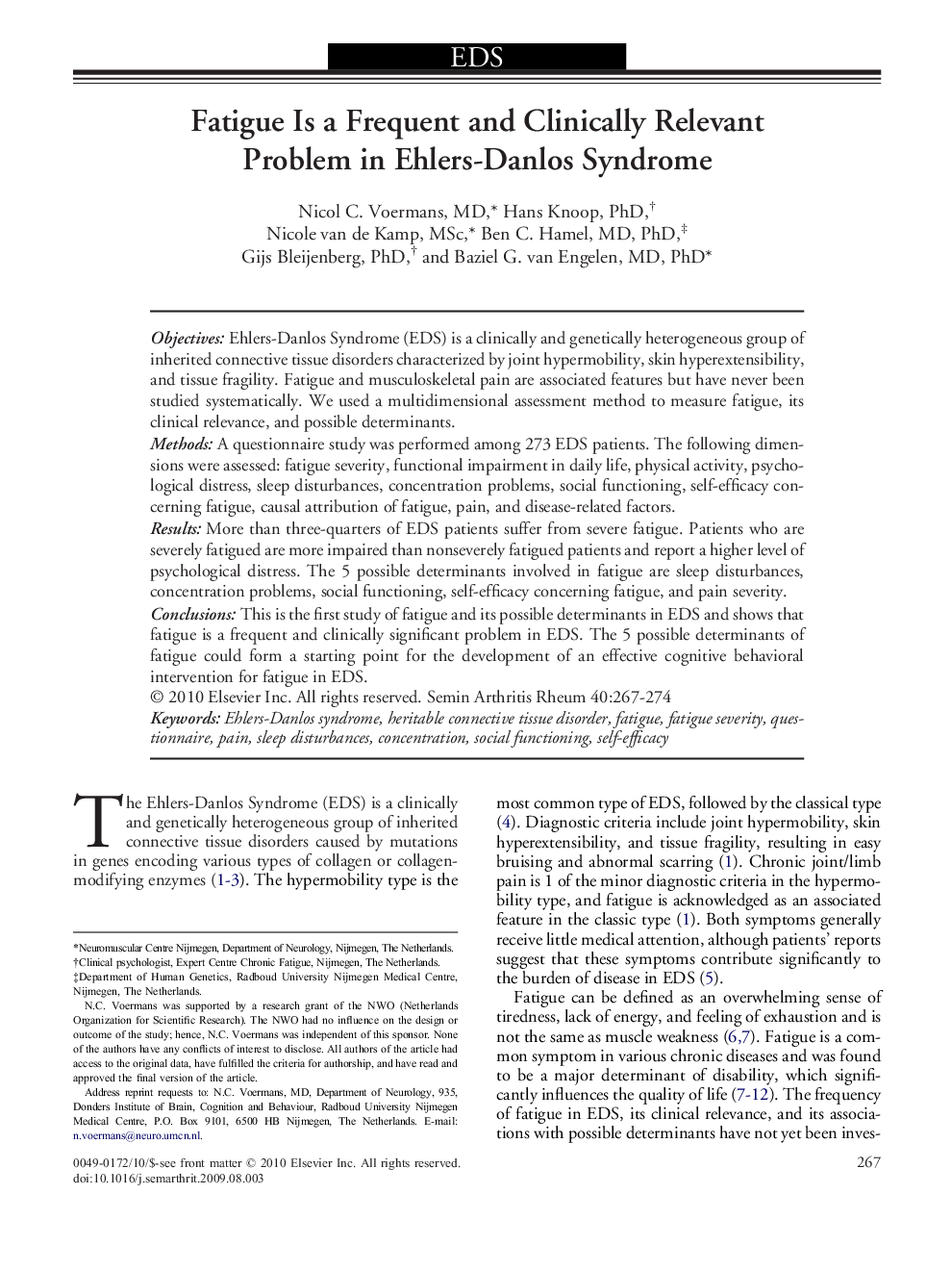| کد مقاله | کد نشریه | سال انتشار | مقاله انگلیسی | نسخه تمام متن |
|---|---|---|---|---|
| 2771815 | 1151774 | 2010 | 8 صفحه PDF | دانلود رایگان |

ObjectivesEhlers-Danlos Syndrome (EDS) is a clinically and genetically heterogeneous group of inherited connective tissue disorders characterized by joint hypermobility, skin hyperextensibility, and tissue fragility. Fatigue and musculoskeletal pain are associated features but have never been studied systematically. We used a multidimensional assessment method to measure fatigue, its clinical relevance, and possible determinants.MethodsA questionnaire study was performed among 273 EDS patients. The following dimensions were assessed: fatigue severity, functional impairment in daily life, physical activity, psychological distress, sleep disturbances, concentration problems, social functioning, self-efficacy concerning fatigue, causal attribution of fatigue, pain, and disease-related factors.ResultsMore than three-quarters of EDS patients suffer from severe fatigue. Patients who are severely fatigued are more impaired than nonseverely fatigued patients and report a higher level of psychological distress. The 5 possible determinants involved in fatigue are sleep disturbances, concentration problems, social functioning, self-efficacy concerning fatigue, and pain severity.ConclusionsThis is the first study of fatigue and its possible determinants in EDS and shows that fatigue is a frequent and clinically significant problem in EDS. The 5 possible determinants of fatigue could form a starting point for the development of an effective cognitive behavioral intervention for fatigue in EDS.
Journal: Seminars in Arthritis and Rheumatism - Volume 40, Issue 3, December 2010, Pages 267–274